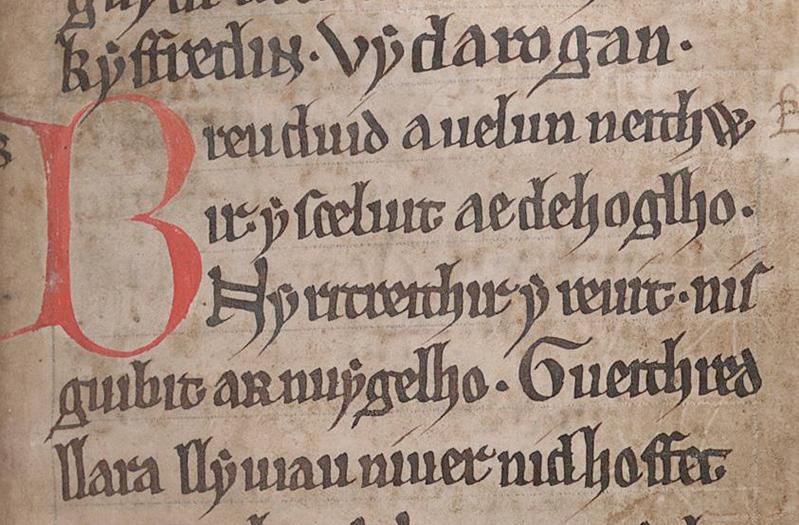ONE of Wales’ most important medieval manuscripts is throwing up ghosts from the past after new research and imaging work revealed eerie faces and lines of verse which had previously been erased from history.
Dating from 1250, The Black Book of Carmarthen at the National Library of Wales is the earliest surviving medieval manuscript written solely in Welsh, and contains some of the earliest references to King Arthur and Merlin.
Despite its importance and decades of scholarly research, the work of a PhD student from the University of Cambridge has revealed tantalising new glimpses of verse, and some images, from the 750-year-old book.
Myriah Williams and her supervisor Professor Paul Russell from Cambridge’s Department of Anglo-Saxon, Norse and Celtic, believe that a 16th century owner of the book, probably a man named Jaspar Gryffyth of Ruthin, summarily erased centuries’ worth of additional verse, doodles and marginalia which had been added to the manuscript as it changed hands throughout the years.
However, using a combination of ultraviolet light and photo editing software, the 16th century owner’s penchant for erasure has been partly reversed to reveal images, and snatches of poetry which are previously unrecorded in the canon of Welsh verse.
Williams and Russell will present a lecture at The National Library of Wales on Wednesday, part of a larger exhibition on the life and work of Sir John Price, one-time owner of the Black Book. There, they will detail some of their findings, stressing the importance of continued research on the manuscript.
Dr Aled Gruffydd Jones, The National Library of Wales’s Librarian and Chief Executive stated: “This new discovery is tremendously exciting, and shows what discoveries may yet be made amongst both old and new collections here at Aberystwyth. We are proud to be part of such innovative research, and share in the Cambridge team’s joy at their discovery.”
The Black Book of Carmarthen may be seen in the National Library’s current exhibition, ‘Publisher and plunderer? Sir John Prise and the first Welsh books’, until June 27.a
















Add Comment